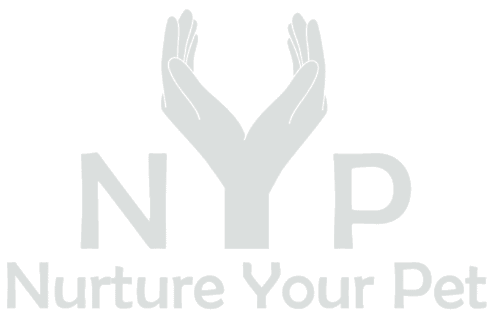The Emotional Impact of Rehoming on Dogs
When a dog is rehomed, it can experience a range of emotions that can be difficult for both the dog and the new owner. The Impact of Losing a Bonded Pair discusses the different emotions that can be experienced, from sadness to joy, and offers advice on how to help your dog adjust to their new home.
Dogs are social creatures and will often struggle when they are forced to live in a new environment without their previous partner. This can lead to signs that your dog may be struggling with rehoming. If you see any of these signs, it's important to take action.
If you're concerned about your dog's welfare and they aren't responding well to gentle reassurance, it may be time to bring them into see a veterinarian for an evaluation. Signs of distress may include increased aggression or escape attempts towards other people or animals in the home, reduced appetite or refusal to eat, increased sleeping or hiding times, or a change in behaviour towards you, such as becoming more challenging or demanding when trying to get close.

At this point, the veterinarian will be able to provide additional advice on how best to care for your dog during their transition period. In addition, there are many resources available online that discuss all aspects of rehoming dogs – from preparing yourself emotionally beforehand, through adopting a rescue pet (which is always beneficial), all the way through adjusting to having a brand new furry friend in the house!
It's important not only make sure your dog is comfortable with their new surroundings but also give them plenty of opportunities for socialization so they can make friends quickly and easily. And lastly, don't forget routine! A consistent routine will help ease any anxiety your dog may experience during their transition period and promote positive associations with their new house, family, and personality.

Understanding The Stress in Adopted Dogs
There's no question that dogs are man's best friend. They're loyal, loving, and always ready to play. But what happens when a dog experiences traumatic stress? This type of stress can have serious consequences for the pet dog, and it's important to understand the signs so that you can help them adjust to their new home.
Traumatic stress is a term used to describe the psychological effects of a traumatic event or experience on an animal. It can be caused by anything from being abandoned or abused to being in a dangerous situation. Pets who experience traumatic stress often exhibit signs such as increased aggression, destructive behaviour, and anxiety. It's important to seek out professional help if you notice any of these signs in your adopted pet dog.
New owners should take care to make a smooth transition for their adopted pet dog by providing plenty of love, attention, and consistency during the adjustment period. This will help prevent any negative emotions from taking hold and ruining the relationship between pet and new owner. Positive reinforcement techniques – such as giving your dog treats or playing with them – can also help during this time period.
It's also important to conduct medical and behavioral assessments before adopting a pet so that you know exactly what kind of pet you're getting into. This information will be helpful in creating an environment that is safe and conducive for both you and your new furry friend!

Preparing For a Smooth Transition for Rescued Dogs
It can be hard to think about the potential effects of surrendering your dog to a shelter or rescue organization. However, there are many benefits to consider. For one, surrendered dogs often come from situations of great stress or cruelty. By giving them a chance at a new, loving home, you are providing them with much needed relief. Additionally, introducing a rescued dog to new people and environments can be a challenging process. It's important to have patience and positive reinforcement during these introductions in order to ensure that the dog feels comfortable and safe throughout the transition.
To help make this process as smooth as possible, it's important to establish a sleeping and eating routine as soon as you take your new rescued dog home. This will help the dog adjust emotionally and mentally and also establish an overall routine for the household. Once this is in place, it's time to introduce other people and animals gradually over time – always monitoring the pup for signs of stress or anxiety. It's also important to provide plenty of enrichment – such as toys or chew toys – so that your pup can get his daily exercise needs met while he is adjusting to his new surroundings.
If you find that your pup is displaying signs of distress (e.g., chewing furniture or tearing up carpets), it's advisable to seek professional help as soon as possible. A good behaviourist can help you identify any underlying issues that may be causing your pet stress and recommend sustainable solutions on how best to address them. In short, by preparing for their transition in advance, you can make sure that both you and your rescued dog are heading into the future with ease!

Bonding With a New Owner Strategies for Success
There's no question that when a family member transitions to owning a new dog, it can be an emotional experience. However, with the right preparation and strategies in place, the transition can go smoothly and without any major bumps. Below, we'll outline some of the key steps that you should take to ensure a smooth transition for both you and your new dog.
Before acquiring your new dog, it's important to understand the emotional impact of changing owners. This means that you need to be prepared for anything – from tears to anger – and be prepared to handle whatever comes your way. It's also important to be aware of different behaviours in a new dog so that you know what is expected of you during the transition period. For instance, some dogs may be more reactive than others during this time.
To minimize stress during the transition period, establish boundaries with your old owner and set expectations for how things will play out during this time. Make sure that everyone is on the same page before beginning this process so there are no surprises later on. Finally, make sure to create a routine – one that is consistent across all areas of your life – so that everything feels more familiar and less stressful. This will help reduce anxiety levels and promote calmness during these hectic times.
One of the most important aspects of bonding with a new owner is providing positive reinforcement through rewards or privileges. Doing things like taking them for walks or giving them special attention can help create lasting memories and strong bonds between you two.
Conclusion
Whether it's a rescue pup or a family pet, changing owners can be a difficult and traumatic experience for any dog. It's important to recognize the signs of distress in order to help your dog adjust to their new home. Establishing boundaries, creating routines, and providing plenty of love, attention, and positive reinforcement are key strategies for success. With the right preparation and understanding of your pup's needs, you can make sure that both you and your adopted pet have an enjoyable transition period.







